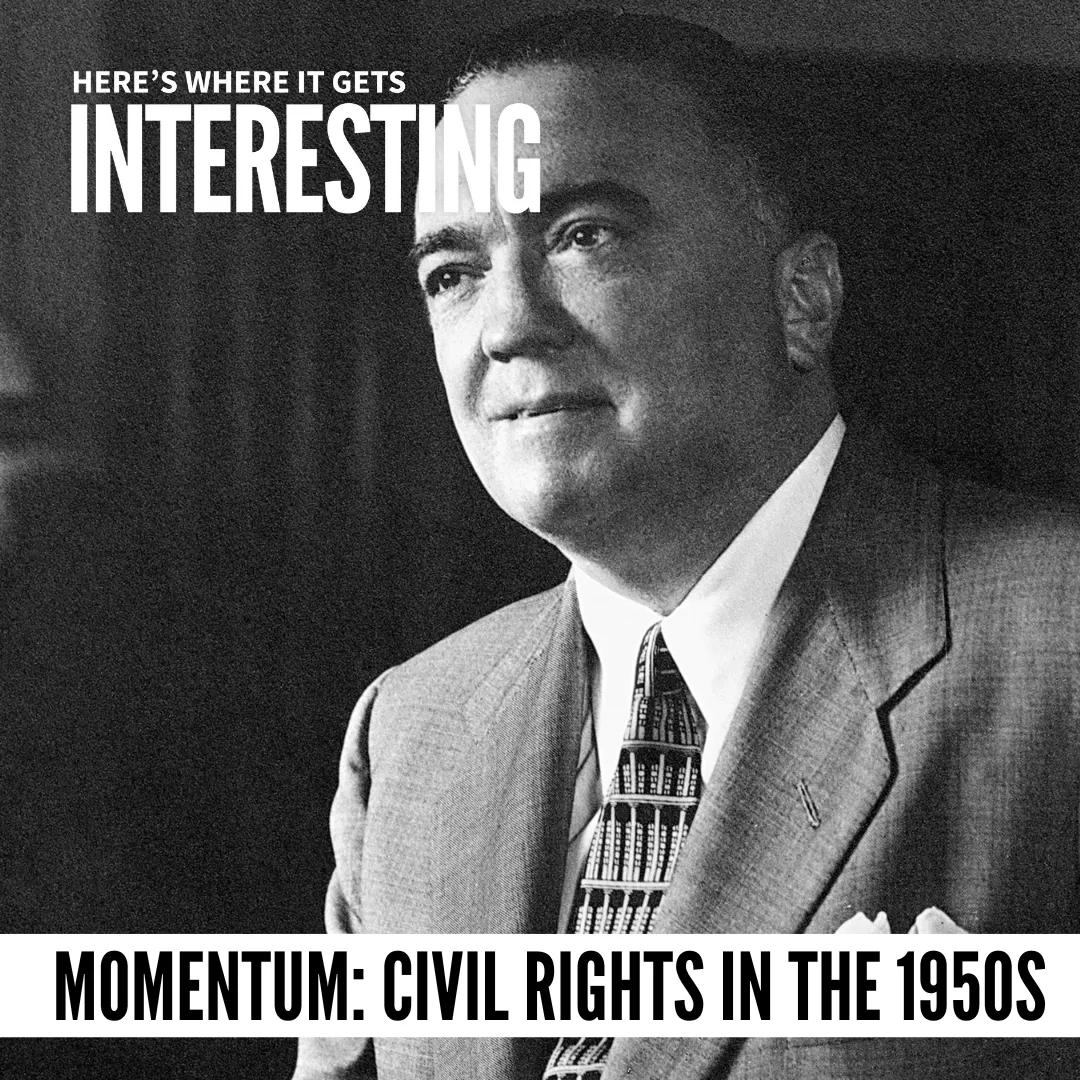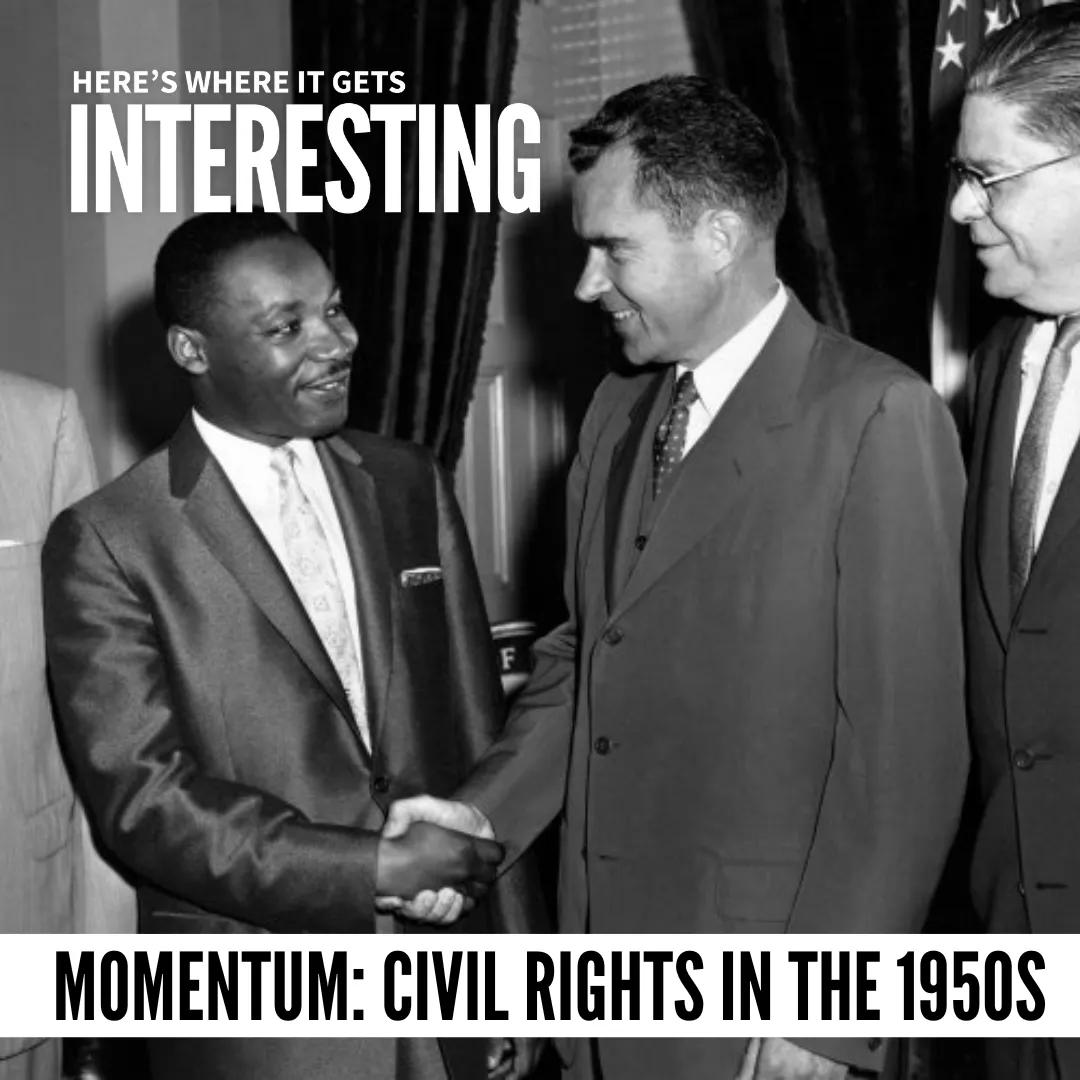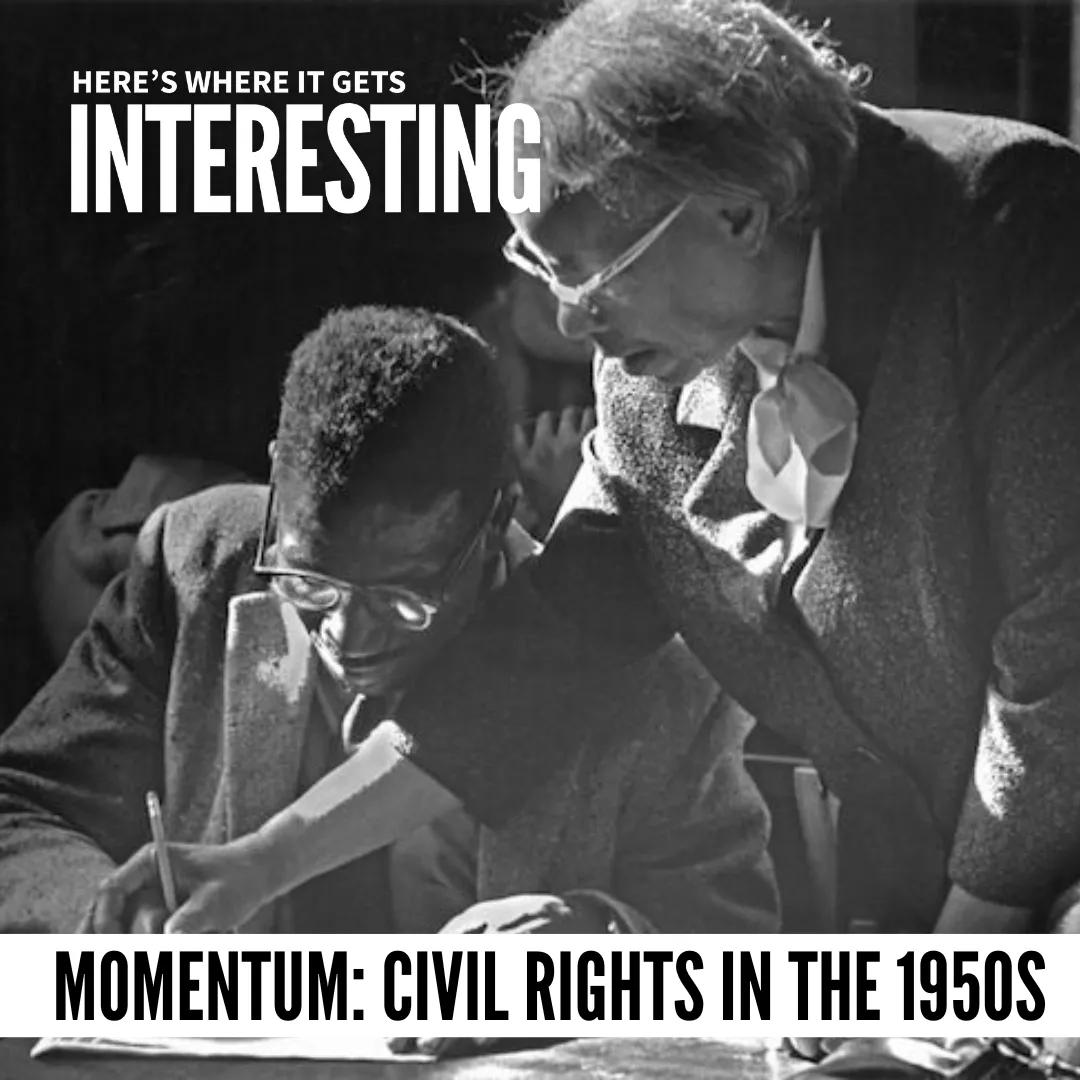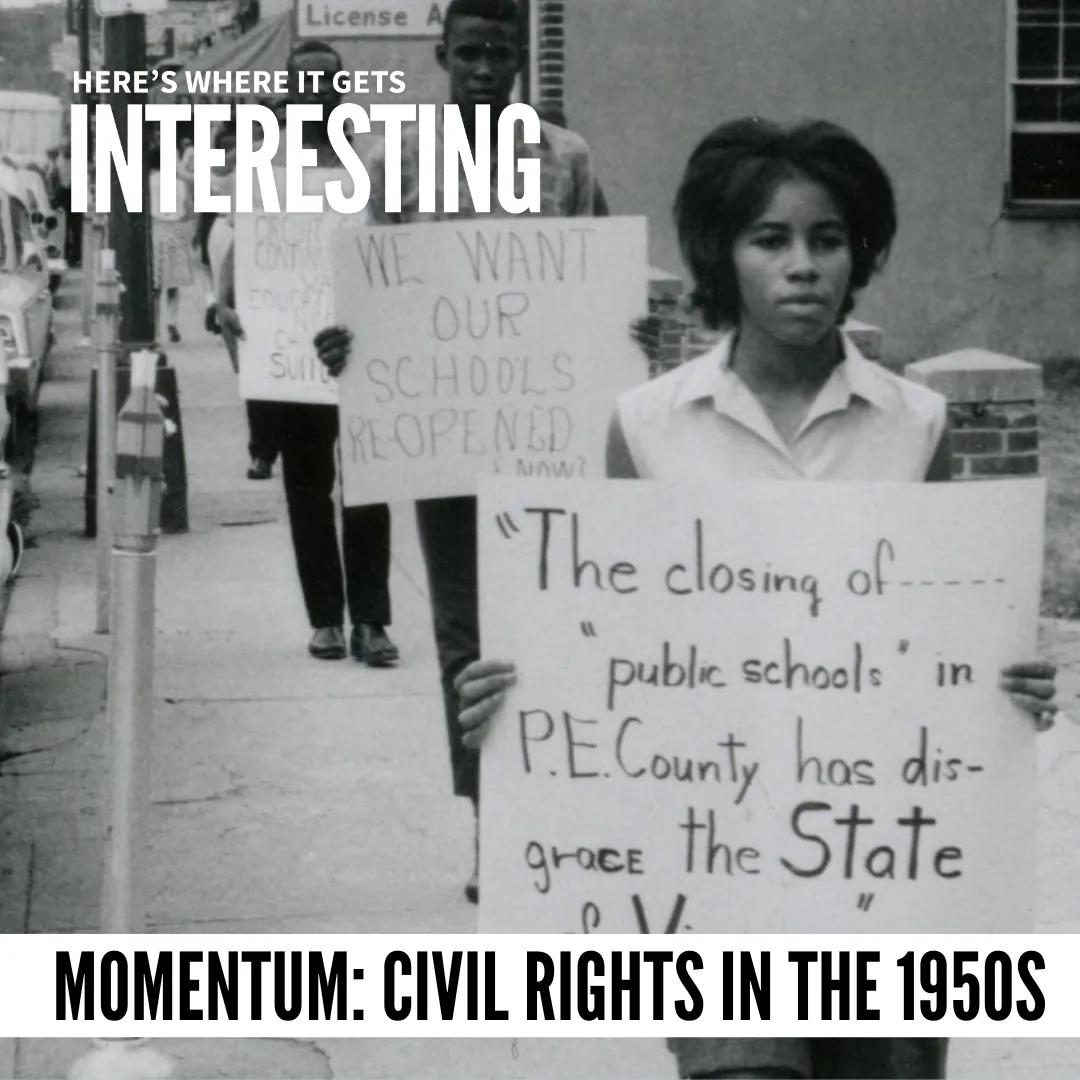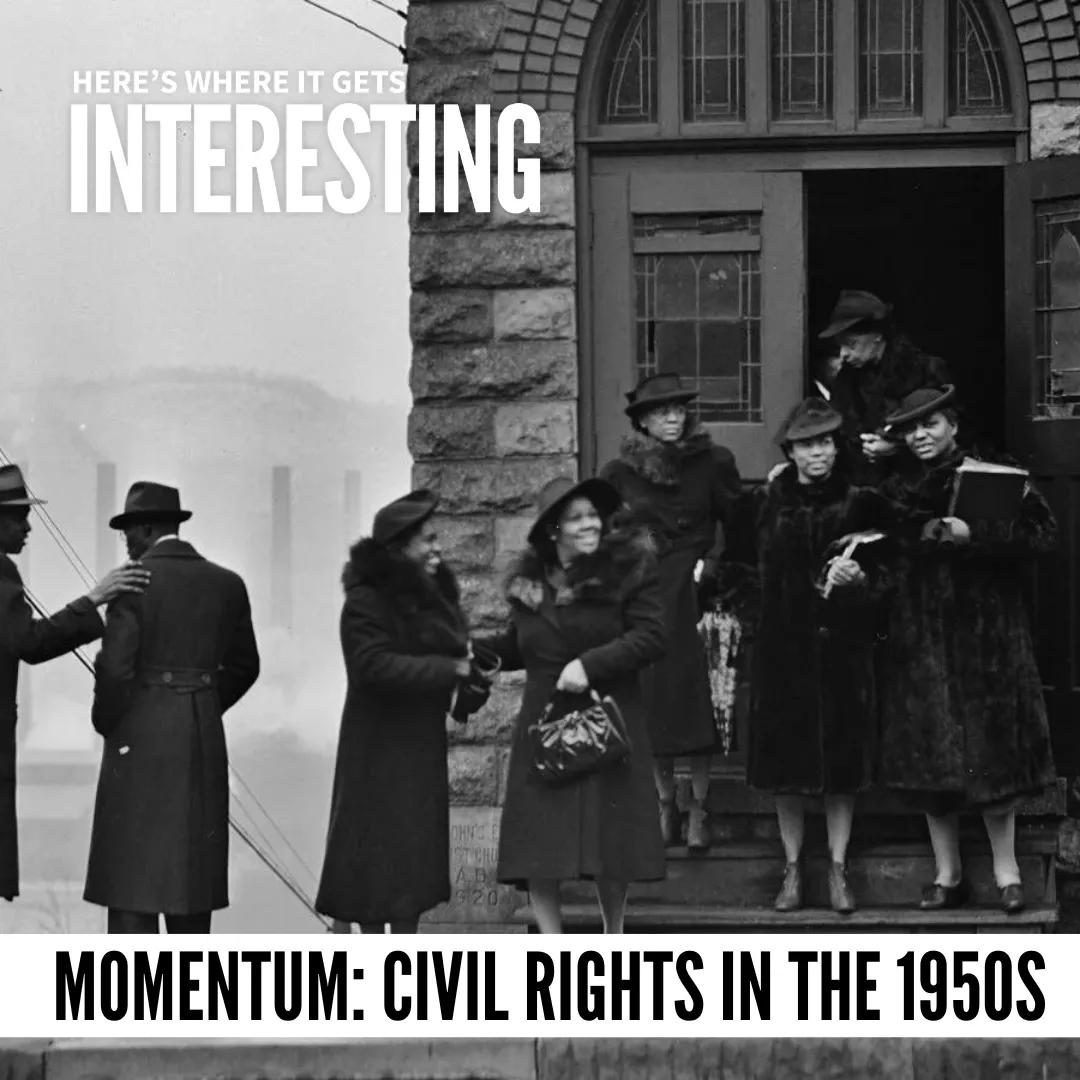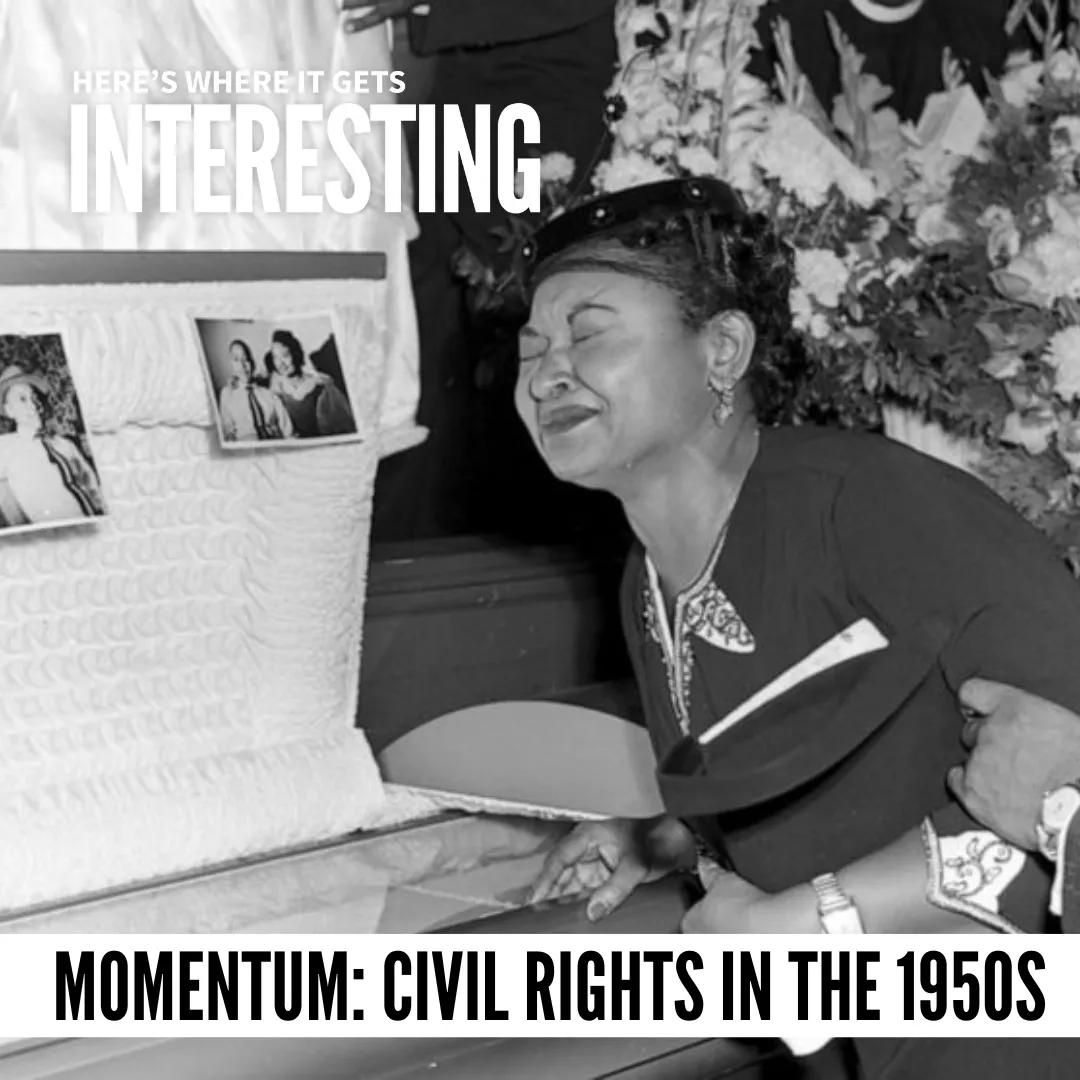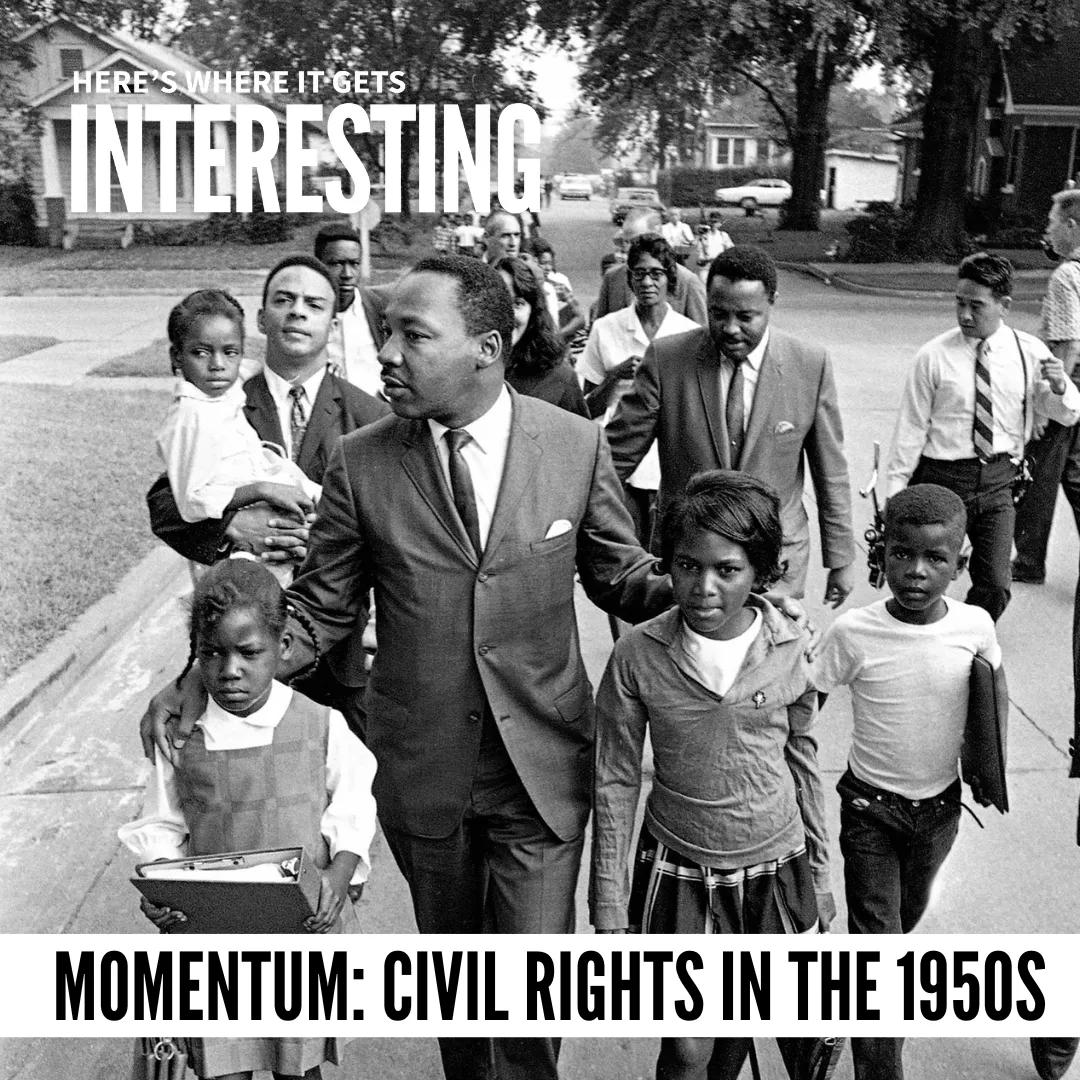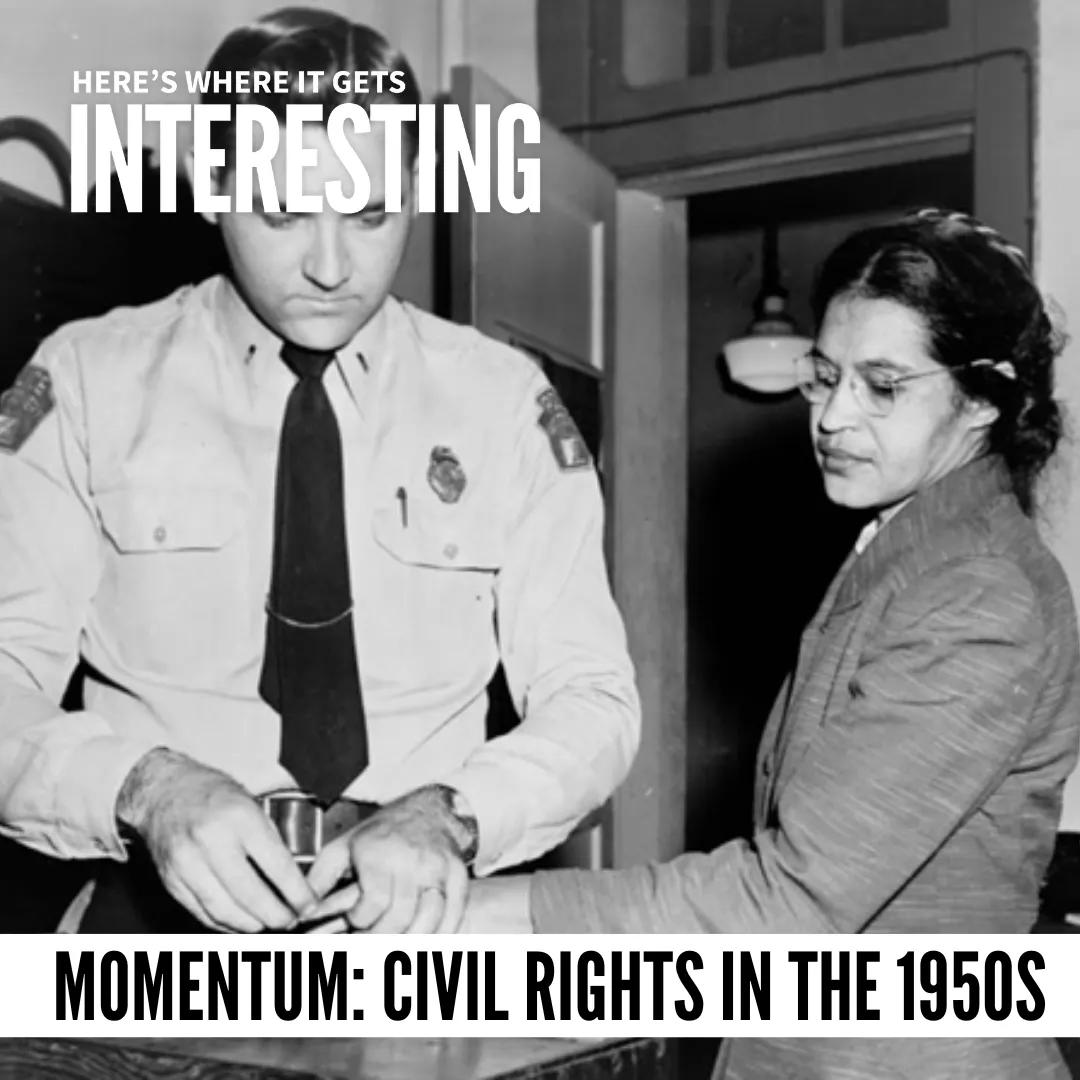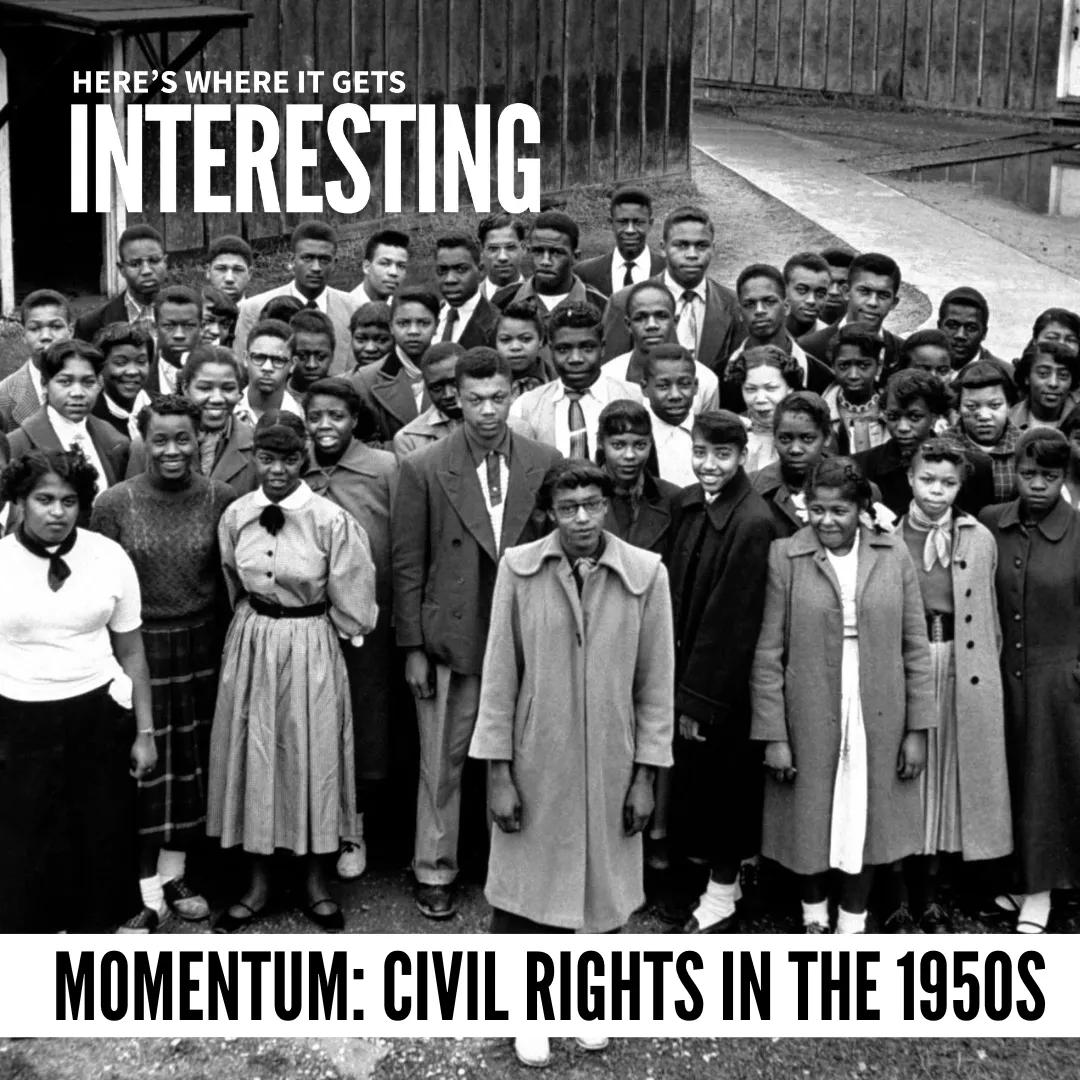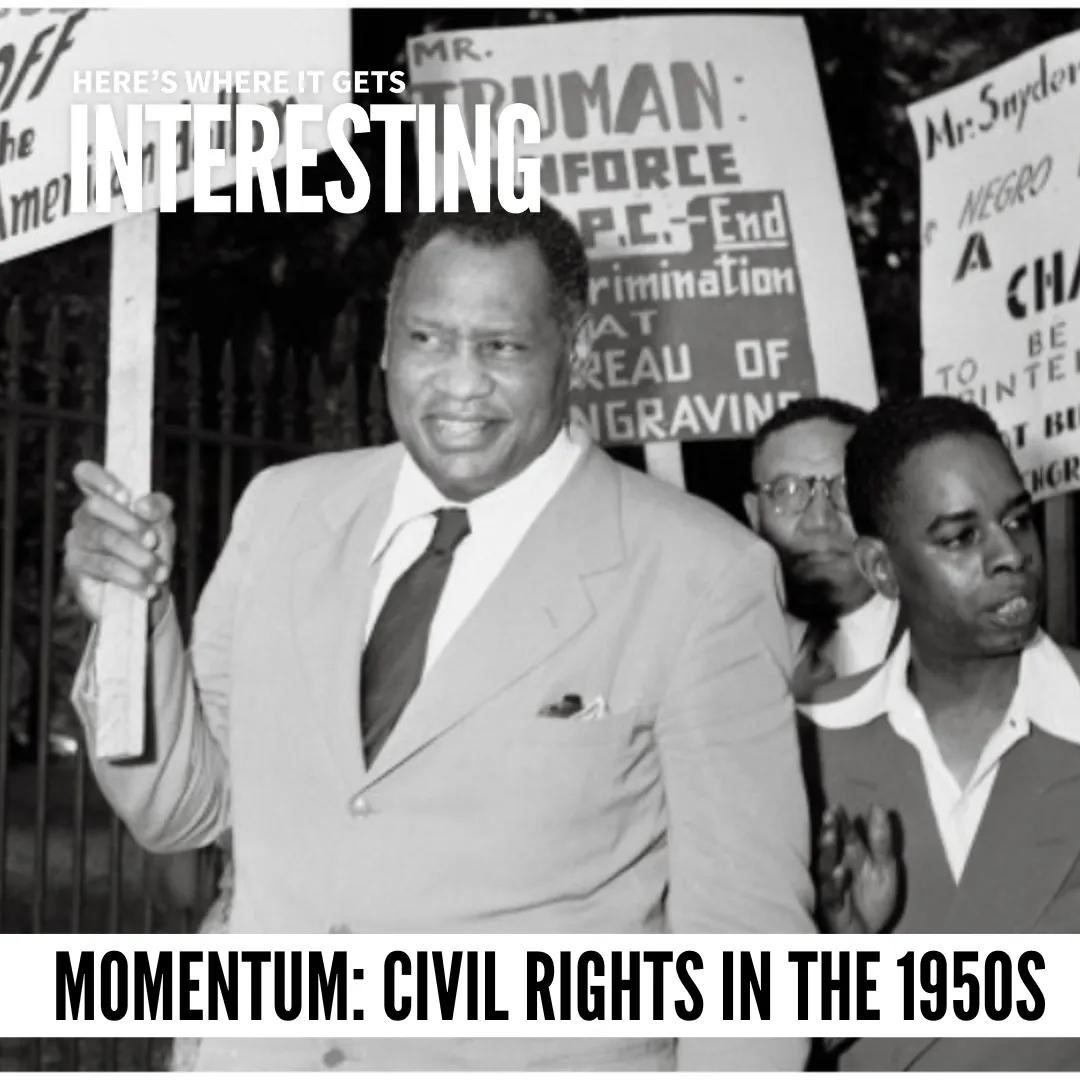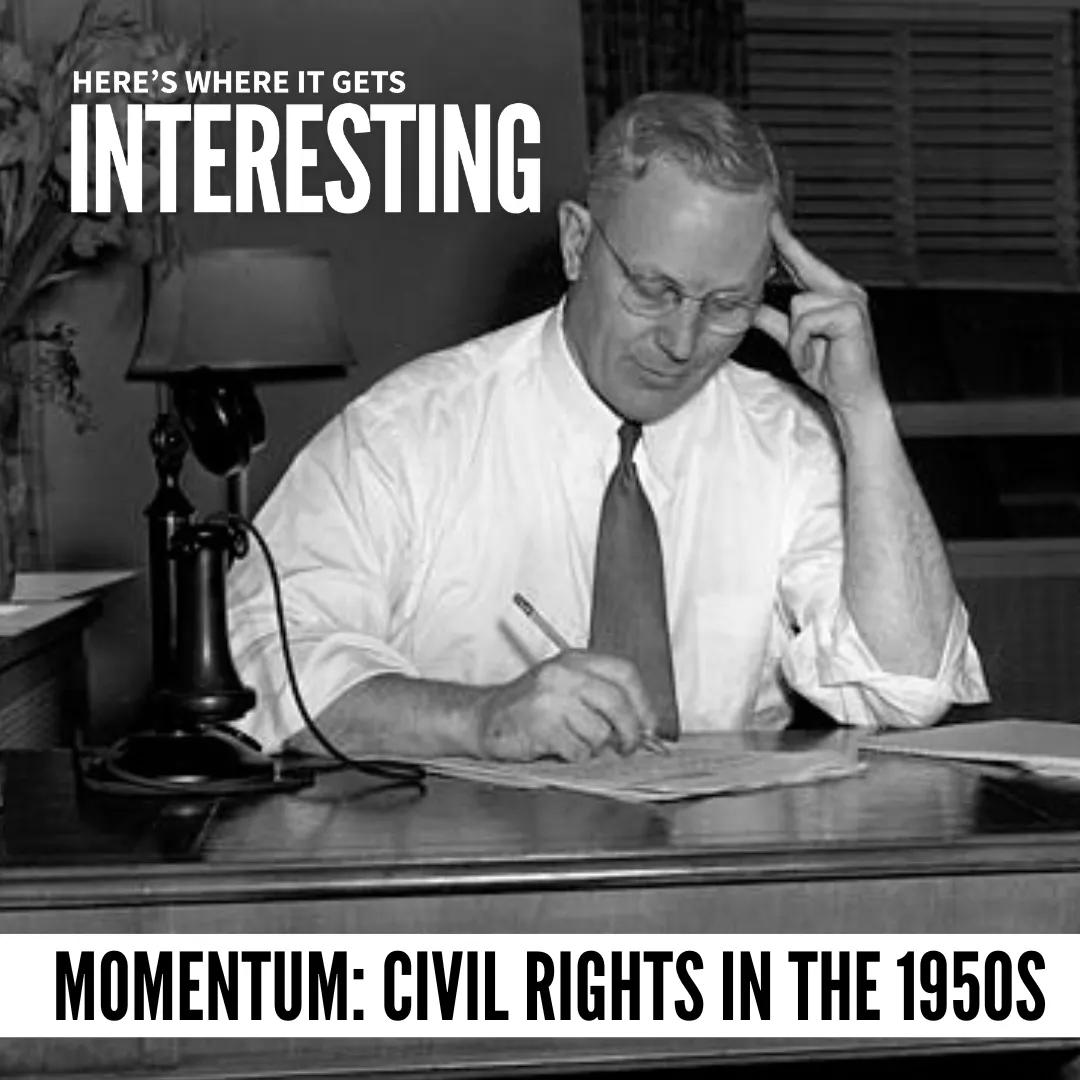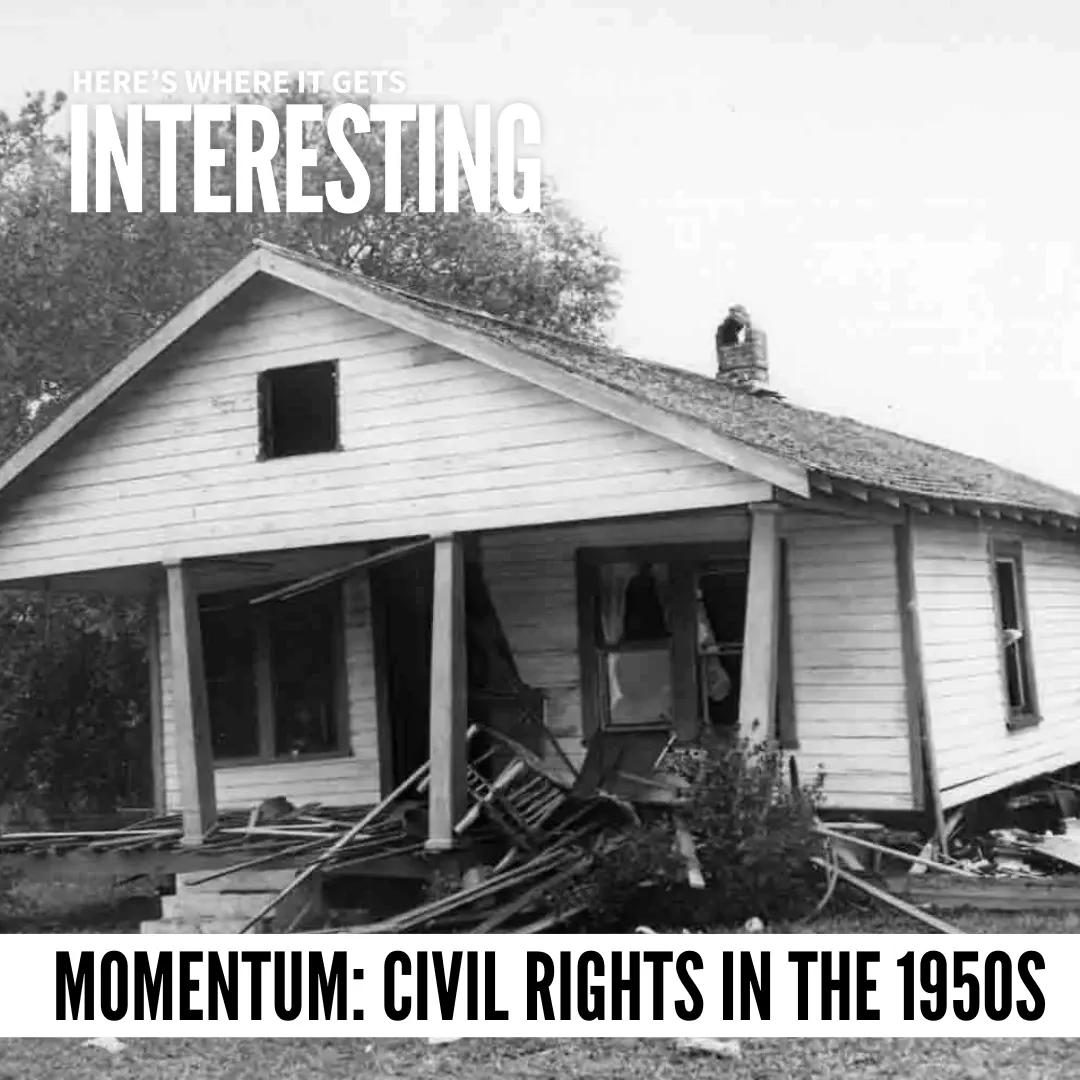Momentum
Momentum
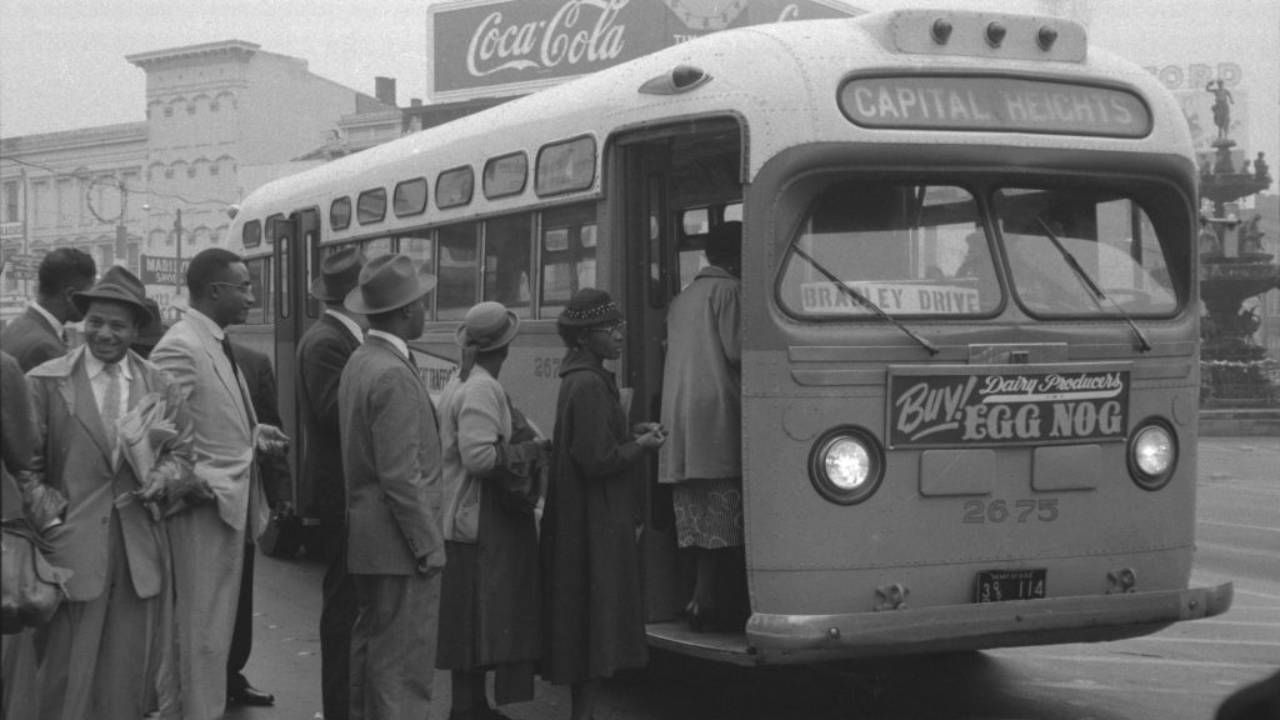
Momentum
Momentum: Civil Rights in the 1950s
When we think about movements, we think about great people working to make great change. But often, movements start slowly, with everyday, ordinary people who have ideas that they share with others. Those ideas gain momentum, through hard work and refusal to stay hidden and silent. In our series, Momentum: Civil Rights in the 1950s, we take a look at the first decade of the Civil Rights Movement: its key players–some well known, and some not so well known–and the ideas that picked up speed as the nation barreled toward the policy changes of the 1960s.
